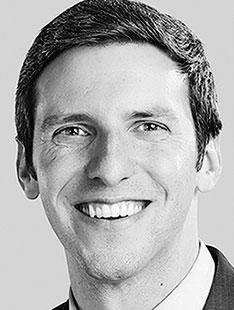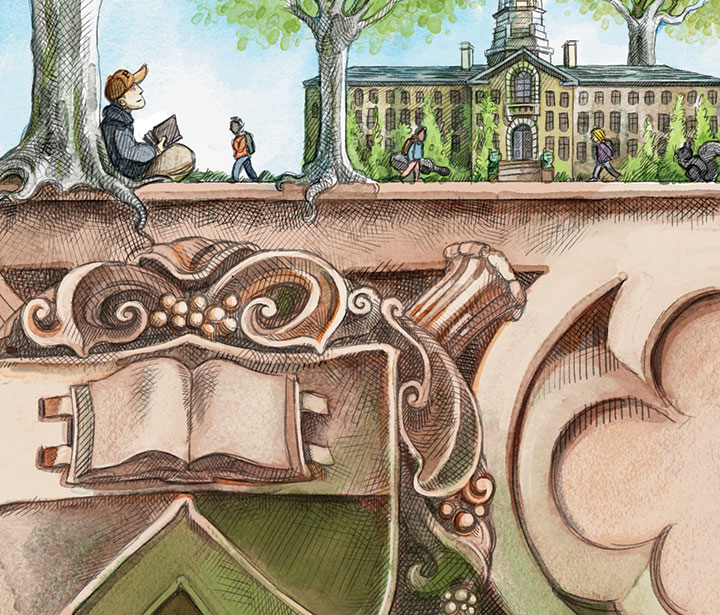While back on campus this year for my 11th reunion, I ran into legendary professor John Fleming *63, whose famous course on Chaucer I took during the fall of my junior year.
On a couple of occasions during that semester, in front of a few hundred students, Professor Fleming would, without warning, call on me to answer a question from our most recent reading assignment.
“Mr. Sittenfeld, can you remind us how many husbands the Wife of Bath had?”
“She had five husbands,” I said, “three of them good, two of them bad.”

“Why, Mr. Sittenfeld, you are not just a pretty face,” Professor Fleming would say, affirming my answer, but then pausing dramatically and looking around the lecture hall before looking back at me. “Some might say you’re not even a pretty face!”
After seeing each other in June, Professor Fleming and I exchanged emails.
I reminded him how in giving the Baccalaureate address to the Class of 2007, he had dubbed us “The Class of Destiny.” We enthusiastically embraced the label, and it’s stuck ever since.
Professor Fleming wrote back: “It is always a moving experience for me to see what has become of the one-time students forever fixed in my memory as golden youth. So many of them, like you yourself, are wholly vindicating the high promise that your old professors saw in them, 10, 20, 30, or even 11 years ago.”
In my early days on campus, I was filled with awe and wonderment at the place that is Princeton. History and achievement were everywhere I turned.
Nassau Hall had functioned as the nation’s capitol during the Revolutionary era; Einstein famously lectured in McCosh 50; enough Nobel laureates roamed the campus that one could pass you by with complete anonymity.
During my first semester, I was late for one of my Psychology 101 classes and missed the introduction of the day’s guest lecturer. At the end of the class, I said to the student sitting next to me, “That guy was impressive!”
The student replied: “Yeah, well, he did win the Nobel Prize in economics last year.”
The guest lecturer had been Daniel Kahneman, a Princeton professor.
But the most exciting interactions came from witnessing the talents of my fellow students — and from considering the possibilities for what the future might hold.
On a September evening, during one of the few times that our entire class sat together in one place, the student body president — a handsome senior boy with dark hair and a Southern accent — said to us, “Look to your left. And now look to your right.” Eleven hundred and fifty freshmen did as instructed.
“One of you might be a United States senator, or even president, one day.”
I wonder how many 18-year-olds sitting in beautiful Richardson Auditorium thought, “He’s talking to me!”
By college standards, I was an early riser, rarely sleeping much past 7 a.m. Emerging from my dorm room one morning, I thought, “Wow, this university thinks of everything — they’re even softly playing classical music in the hallways as students start their day.”
As I walked along, I realized the music was coming from a specific place, not being pumped through the halls. I followed my ears until I came upon a small study room, where my across-the-hall neighbor, Serena — who was of Indian descent and had grown up in London — was practicing the cello.
“How long have you played for?” I asked her. “Since I was 5,” she said.
I let her get back to it. It was 7:15 a.m. Her music sounded sublime, and the whole scene felt so Princeton-y.
I suspect that what most of us who are now 11, 25, or 50 years removed from our own undergraduate experience would tell the incoming class — the Class of 2022! — is that the next four years are going to fly by in a way that’s hard to imagine.
And you can’t slow it down.
All you can do is soak it up.












No responses yet